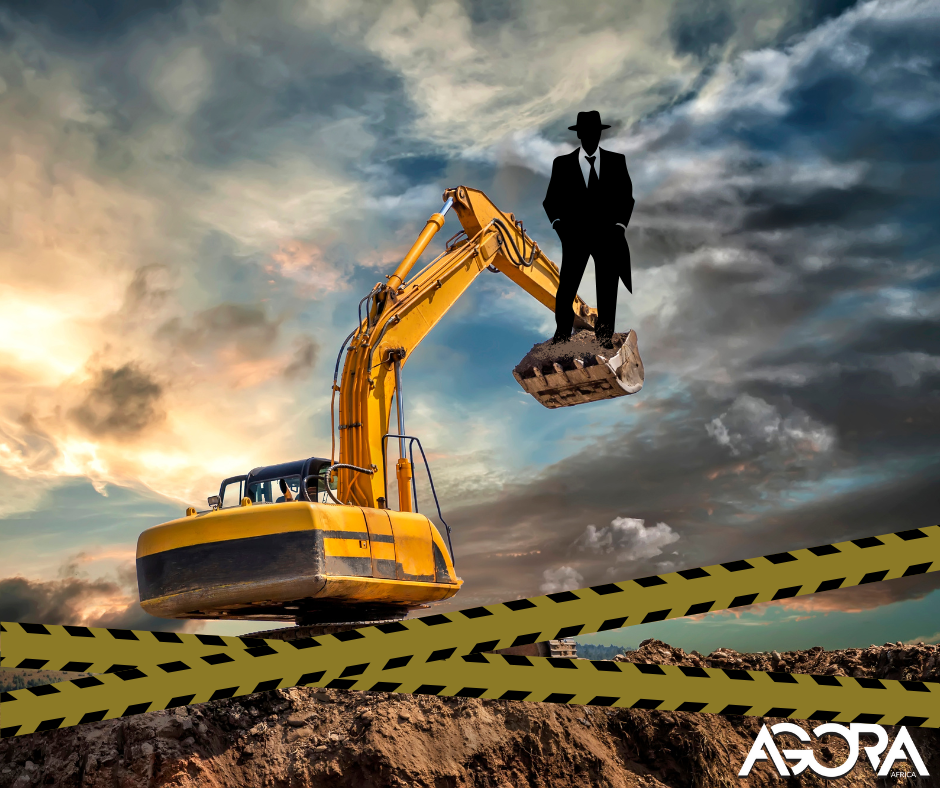Publications

Thabiso Ramabele
5th Nov, 2024
Introduction
South Africa's construction industry plays a critical role in the nation's infrastructure advancement and economic development. However, it faces a significant threat from organised crime, commonly referred to as "construction mafias." These criminal organisations use intimidation, violence, and bullying to infiltrate construction projects, demanding a portion of the profits or causing disruptions when their demands are not met. This blog focus on the roots, consequences, and possible strategies to fight the rising issue of construction mafias in South Africa.
The Origins of Construction Mafias
The origin of construction mafias can be traced back to as early as 2010, when they began as community-oriented organisations advocating for local job opportunities and participation in development projects. These groups proclaimed that businesses were neglecting local labour in favour of cheap outsourced options. Although some of their concerns were valid, dodgy criminals took advantage of the situation, utilising violence and intimidation to accumulate wealth and control of contracts in major projects. They normally front as “business forums” or “community representatives,” yet their methods are far from legal.
Method of operation
Construction mafias generally operate in aggressive tactics at construction sites, disrupting work and demanding 30% share of the project's value or control over specific subcontracts. Companies that resist these demands risk facing sabotage, physical attacks, or even killings. The situation got worse as these groups often collaborate with corrupt local officials or insiders, perpetuating a cycle of violence and intimidation.
Economic Impact
The impact of construction mafias has caused significant interruptions in infrastructure development. Critical projects, including housing projects, schools, road construction, and energy plants, have faced delays or stopped completely. These disruptions result in annual losses amounting to billions of rands, putting additional pressure on an already struggling economy. In a country dealing with high levels of unemployment and poverty, the consequences of delayed infrastructure projects further intensify social inequality.
Safety Concerns and Worker Exploitation
Beyond the financial implications, the safety of both workers and project managers is facing significant threat. The persistent fear of violence has forced many companies to exit the market or to delegate tasks to subcontractors who often do not possess the necessary experience or resources to adhere to safety regulations. As a result, the working conditions on these projects have deteriorated, leading to increased worries about labour exploitation and a decline in the quality of public infrastructure.
The Role of Government and Law Enforcement
The South African government recognises the gravity of the situation and has initiated measures to tackle it; however, progress have been slow. Law enforcement agencies have found it difficult to match the increasing complexity and influence of these criminal organisations. Additionally, corruption within local government complicates matters, hindering legitimate contractors and developers from obtaining necessary protection or functioning without disruption.
Although legislative changes and unified law enforcement initiatives are essential, the issue of the construction mafia underlines the wider challenges related to governance, systemic inequality, and economic prospects in South Africa.
Social Implications
The presence of construction mafias reflects significant social challenges, including inequality, unemployment, and poverty. Within communities, there exists a division between individuals who view these organisations as champions of local economic involvement and those who suffer the consequences of their unlawful activities. This complexity adds layers to the narrative, as the fundamental problem of economic exclusion gives an impression of legitimacy to construction mafias in certain areas.
Possible Solutions
The government needs to intensify its initiatives aimed at dismantling these criminal organisations by using a strategy that combines intelligence-led policing with strong anti-corruption policies. Identifying and removing corrupt officials who facilitate the operations of these mafias is a critical first step.
Establishing official channels for community involvement in local construction initiatives may reduce the necessity for criminal involvement. It is essential that programs emphasising local employment and subcontracting operate with transparency and regulation, thereby guaranteeing equitable participation and minimising the risk of mafia influence.
Collaboration between construction companies and governmental bodies is essential for the establishment of effective safety protocols and the formation of rapid-response teams capable of tackling on-site hazards. Gaining the support of major contractors, developers, and labour unions is crucial for creating a unified strategy to combat these criminal threats.
Addressing the economic foundations that drive the activities of construction mafias is essential for implementing long-term solutions. Initiatives aimed at enhancing skills, creating job opportunities, and fostering support for small local enterprises have the potential to diminish the allure of mafia organizations within marginalized communities.
Conclusion
The rise of construction mafias in South Africa poses a significant threat to the country's infrastructure development, economic stability and social unity. Tackling this issue requires a holistic approach that combines law enforcement initiatives with community engagement and economic reform. Without coordinated and resolute actions, the nation risks facing heightened instability and obstructed progress, which may greatly delay its ability to provide important infrastructure and services to its population.
References:
Qhobosheane, Jenni Irish. Extortion or transformation https://globalinitiative.net/analysis/extortion-construction-mafia-south-africa/
L.Donnelly (29 April 2019) Rise of the new construction mafias. Mail & Guardian. https://mg.co.za/article/2019-04-12-00-rise-of-the-new-construction-mafia/
South African Government News Agency ( 2023, July 31) Concerted effort required to tackle construction mafias https://www.sanews.gov.za/features-south-africa/concerted-effort-required-tackle-construction-mafias
EARLIER POSTS